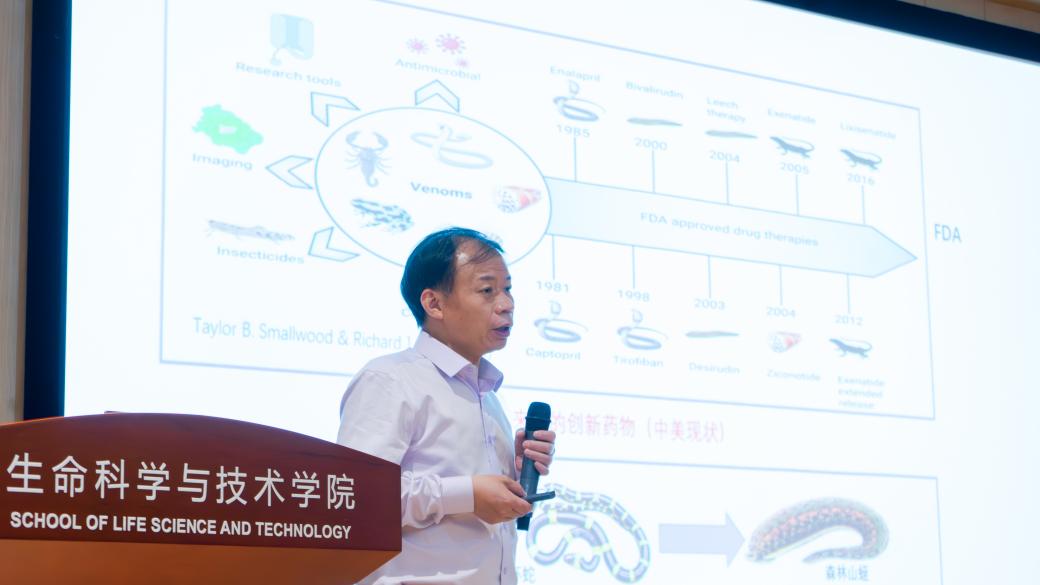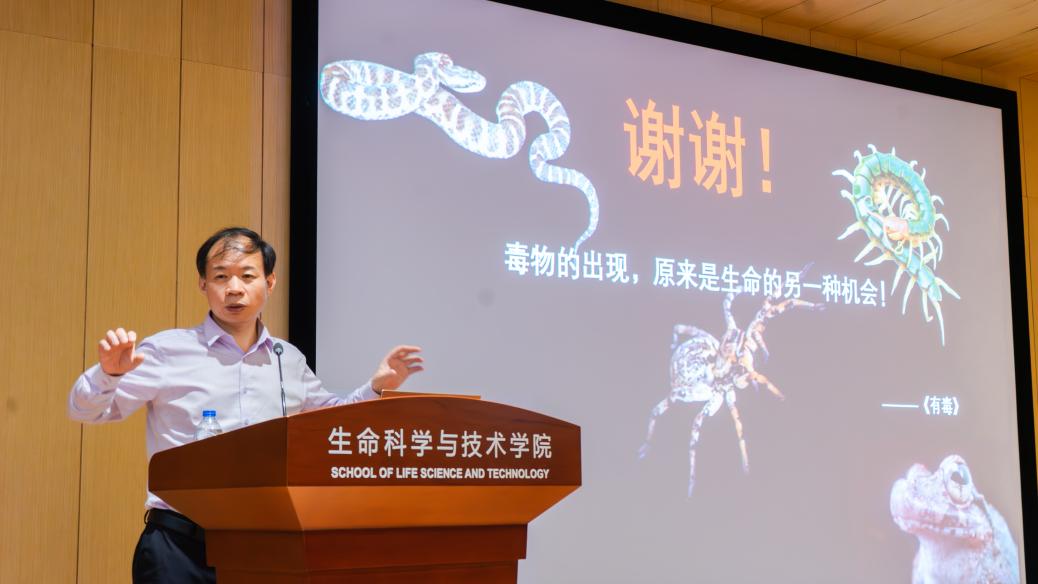On May 17, 2024, at the invitation of Associate Professor Shen Wei from the School of Life Science and Technology at ShanghaiTech University, Lai Ren, the deputy director of the Kunming Institute of Zoology, Chinese Academy of Sciences, delivered an engaging lecture titled “Animal Toxins in Relation to Environmental Adaptation, Human Disease Mechanisms, and Drug Development” in the Lecture Hall of LBuilding at SLST for faculty and students.

Professor Lai Ren has long been dedicated to researching venomous animals and animal toxins, aiming to use animal toxins as molecular probes to explore the mechanisms behind human diseases and to develop innovative drugs. In his presentation, Professor Lai began by highlighting the necessity of ecological knowledge for biological research and remarked on the current progress of biotoxin-based drug research both internationally and domestically. Additionally, he gave an in-depth introduction to the diversity of animal toxins and their role in promoting the survival of animals, ranging from mammalian salivary gland toxins and amphibian skin defensive peptide toxins to insect toxins, centipede toxins, scorpion toxins, and more, illustrating the critical functions of these biological toxins in natural survival. Building on this understanding, Professor Lai’s team has also utilized toxins as tools to investigate animals’ mechanisms for sensing and responding to environmental changes such as temperature, oxygen concentration, and gravity, and they are devoted to developing new drugs for cardiovascular and cerebrovascular diseases.

This lecture not only furthered our comprehension of the biological effects of toxins and their significant potential as research tools in various fields but also showcased Professor Lai’s team’s pivotal research achievements in the field of animal toxins. Throughout his talk, Professor Lai repeatedly mentioned “All drugs come with a hint of poison, and all poisons can be therapeutic,” highlighting the essential role of animal toxins in ecological adaptation, species interaction, and their importance as sources for future drug development. This insight profoundly illuminated the concept that “The existence of toxins represents another opportunity for life.”
About Researcher Lai Ren:
Lai Ren is the Deputy Director of the Kunming Institute of Zoology, Chinese Academy of Sciences, the Vice President of the Yunnan Society of Biochemistry and Molecular Biology, the Deputy Editor-in-Chief of the Journal of Venom Research, and a member of the editorial board of Chinese Natural Medicines.
He studied for his bachelor’s degree at Southwest Normal University from 1991 to 1995, pursued his Ph.D. at the Kunming Institute of Zoology, Chinese Academy of Sciences from 1995 to 2001, served as an assistant researcher at the same institute from 2001 to 2002, carried out postdoctoral research at the University of Liverpool from 2002 to 2004, and has been the Deputy Director and a researcher at the Kunming Institute of Zoology, Chinese Academy of Sciences since 2004.


